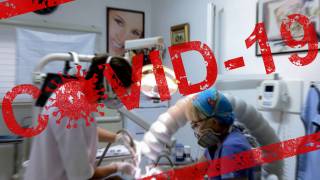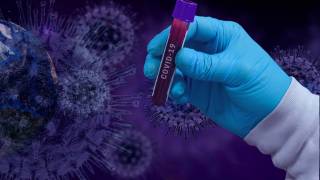Oxford University’s COVID-19 Vaccine Found Very Effective

The University of Oxford and its vaccine production partner AstraZeneca announced positive high-level results from an initial analysis of the experimental vaccine candidate's clinical trials, AZD1222.
On November 23, 2020, the university and AstraZeneca issued press statements indicating ‘the UK and Brazil clinical studies showed the AZD1222 vaccine was highly effective in preventing COVID-19, the primary endpoint no hospitalizations or severe cases of the disease were reported in participants receiving the vaccine.
One dosing regimen (n=2,741) showed vaccine efficacy of 90% when AZD1222 was given as a half dose, followed by a full dose at least one month apart.
And another dosing regimen (n=8,895) showed 62% efficacy when given as two full doses at least one month apart.
The combined analysis from both dosing regimens (n=11,636) resulted in an average efficacy of 70%.
The pooled analysis included data from the COV002 Phase II/III trial in the UK and COV003 Phase III trial in Brazil.
All of these results were statistically significant (p<=0.0001). And more data will continue to accumulate, and additional analysis will be conducted, refining the efficacy reading and establishing the duration of protection, said these press statements.
An independent Data Safety Monitoring Board determined that the analysis met its primary endpoint showing protection from COVID-19 occurring 14 days or more after receiving two doses of the vaccine. No serious safety events related to the vaccine have been confirmed. AZD1222 was well tolerated across both dosing regimens.
However, this interim analysis was limited to a total of 131 COVID-19 cases, which is caused by the SARS-CoV-2 coronavirus.
AstraZeneca added ‘it will now immediately prepare the regulatory submission of the data to authorities worldwide that have a framework in place for conditional or early approval.
The Company will seek an Emergency Use Listing from the World Health Organization for an accelerated pathway to vaccine availability in low-income countries. The full analysis of the interim results is being submitted for publication in a peer-reviewed journal in parallel.
Pascal Soriot, AstraZeneca’s CEO stated: “This vaccine’s efficacy and safety confirm that it will be highly effective against COVID-19 and will have an immediate impact on this public health emergency. Furthermore, the vaccine’s simple supply chain and our no-profit pledge and commitment to broad, equitable, and timely access means it will be affordable and globally available, supplying hundreds of millions of doses on approval.”
AstraZeneca added ‘it is making rapid progress in manufacturing with a capacity of up to 3 billion doses of the vaccine in 2021 on a rolling basis, pending regulatory approval. Moreover, the vaccine can be stored, transported, and handled at normal refrigerated conditions (2-8 degrees Celsius/ 36-46 degrees Fahrenheit) for at least six months and administered within existing healthcare settings.
AZD1222 was co-invented by the University of Oxford and its spin-out company, Vaccitech. It uses a replication-deficient chimpanzee viral vector based on a weakened version of a common cold virus (adenovirus) that causes infections in chimpanzees and contains the genetic material SARS-CoV-2 virus spike protein.
After vaccination, the surface spike protein is produced, priming the immune system to attack the SARS-CoV-2 virus if it later infects the body.
The Oxford vaccine AZD1222 (ChAdOx1 nCoV-19) is made from a virus, which is a weakened version of a common cold virus (adenovirus), that has been genetically changed so that it can't grow in humans.
Adenovirus vaccines have been researched and used extensively for decades and have the significant benefit that they are stable, easily manufactured, transported, and stored at domestic fridge temperature (2-8 degrees C). This means they can be easily distributed using existing medical facilities such as doctor’s surgeries and local pharmacies, allowing for the vaccine, if approved, to be deployed very rapidly.
Professor Louise Richardson, Vice-Chancellor at the University of Oxford, commented: ‘This is a great day for the University of Oxford and universities everywhere. Pushing at the frontiers of knowledge with partners across the globe and putting our extraordinary brainpower in service to society is what we do best.’
AstraZeneca is a global, science-led biopharmaceutical company that focuses on discovering, developing, and commercializing prescription medicines.
Oxford has a distinctive collegiate structure. There are 39 Oxford colleges, which are financially independent and self-governing but relate to the central University in a federal system. Students and academics benefit from belonging to the University, a large, internationally-renowned institution, and a college or hall, a small, interdisciplinary academic community.
PrecisionVaccinations publishes research-based news.
Our Trust Standards: Medical Advisory Committee

























